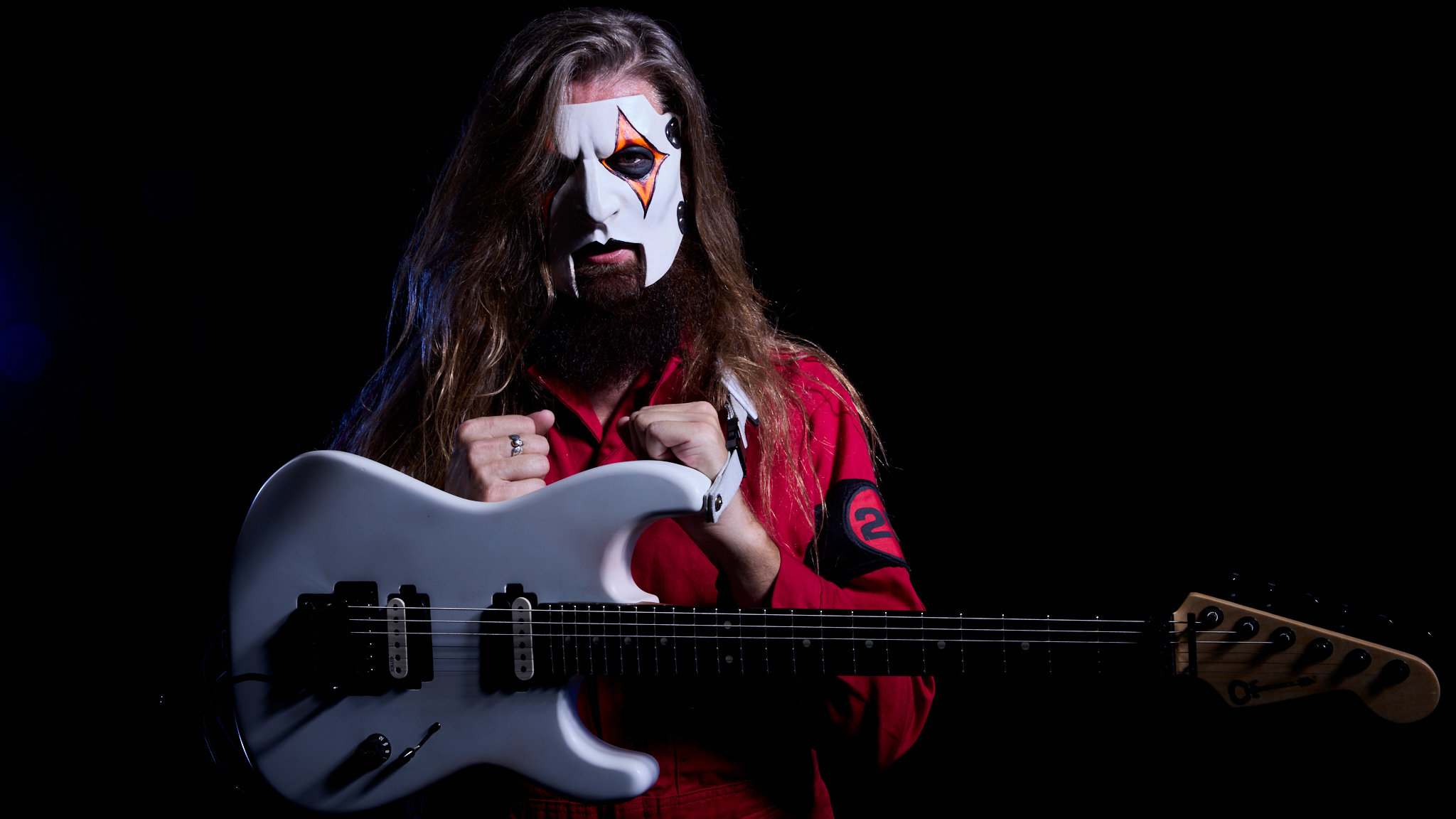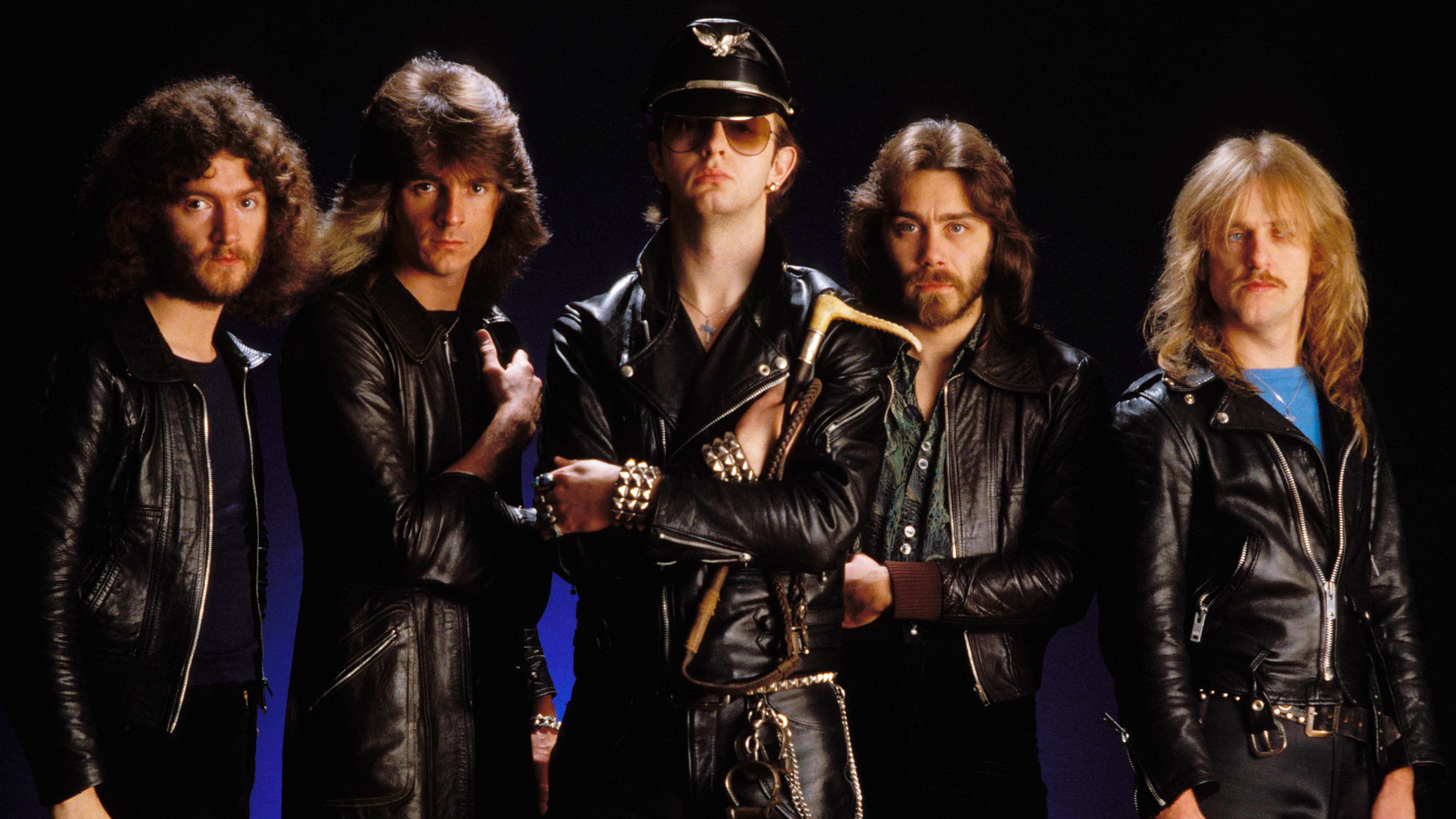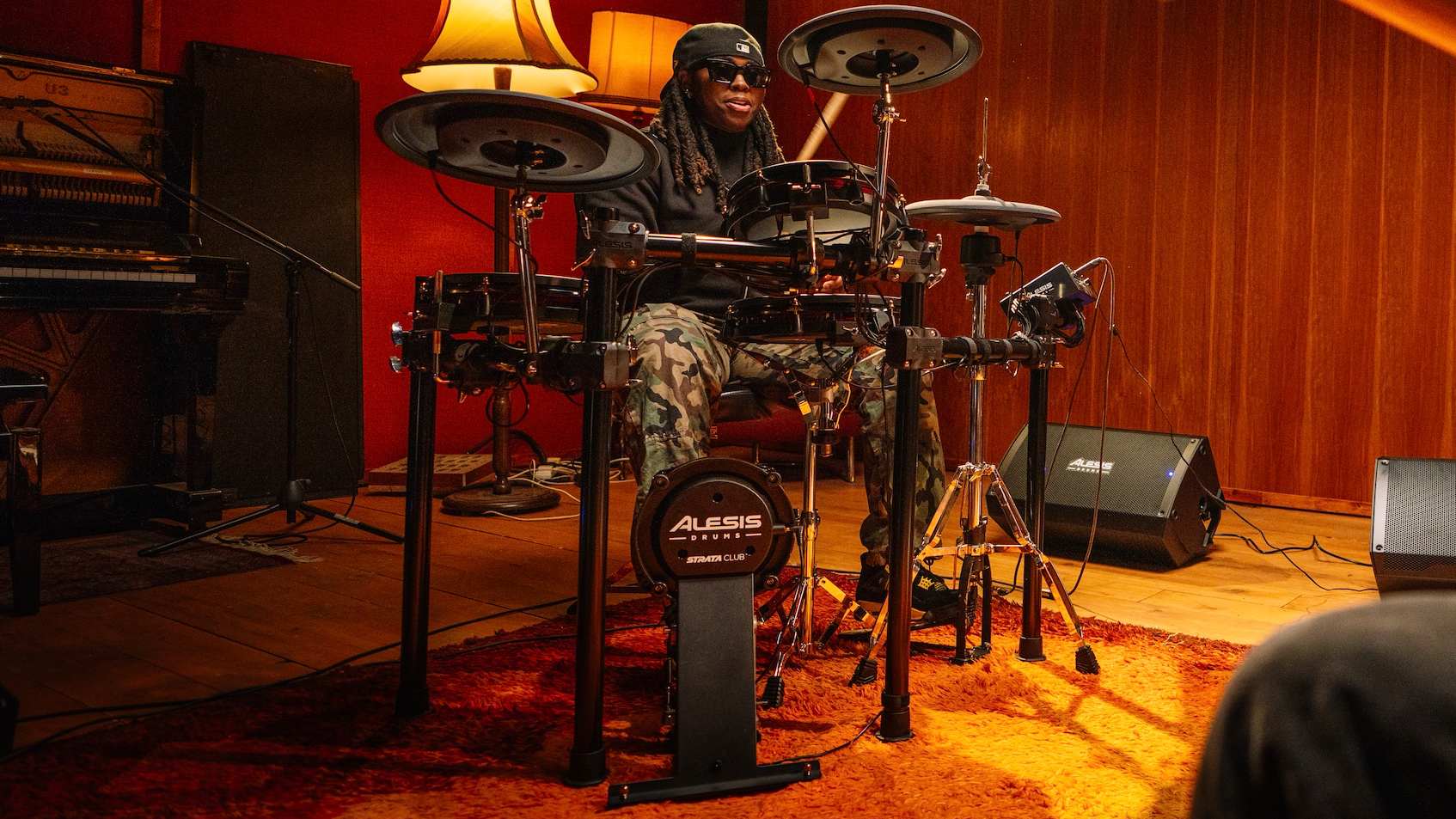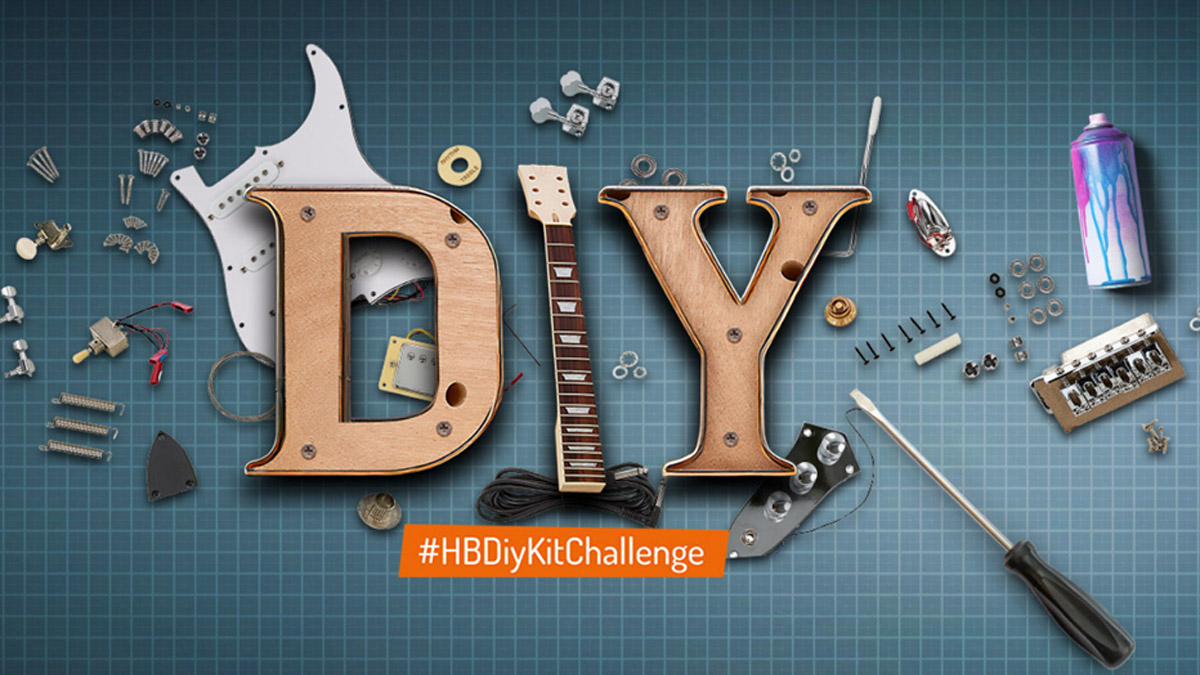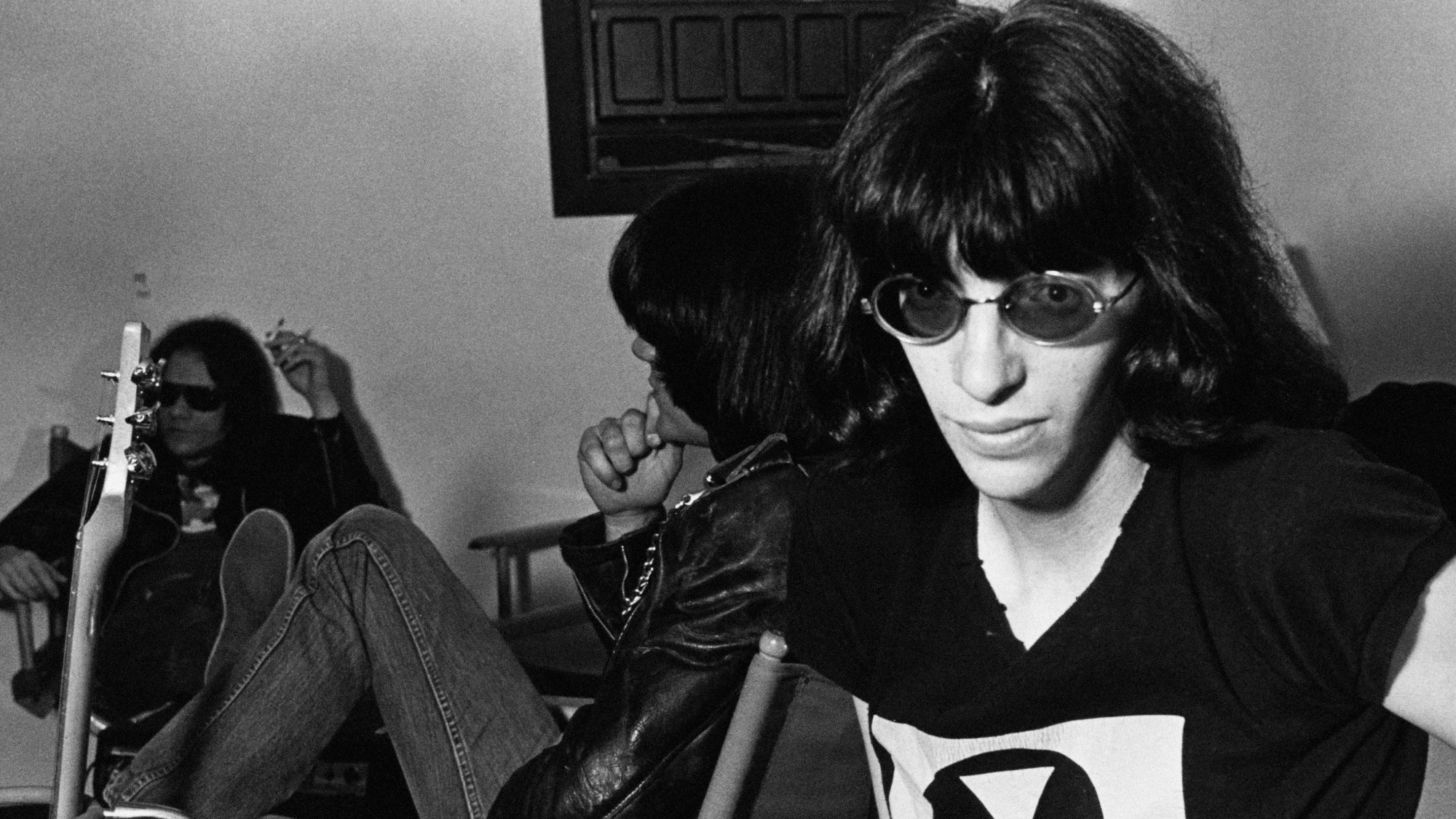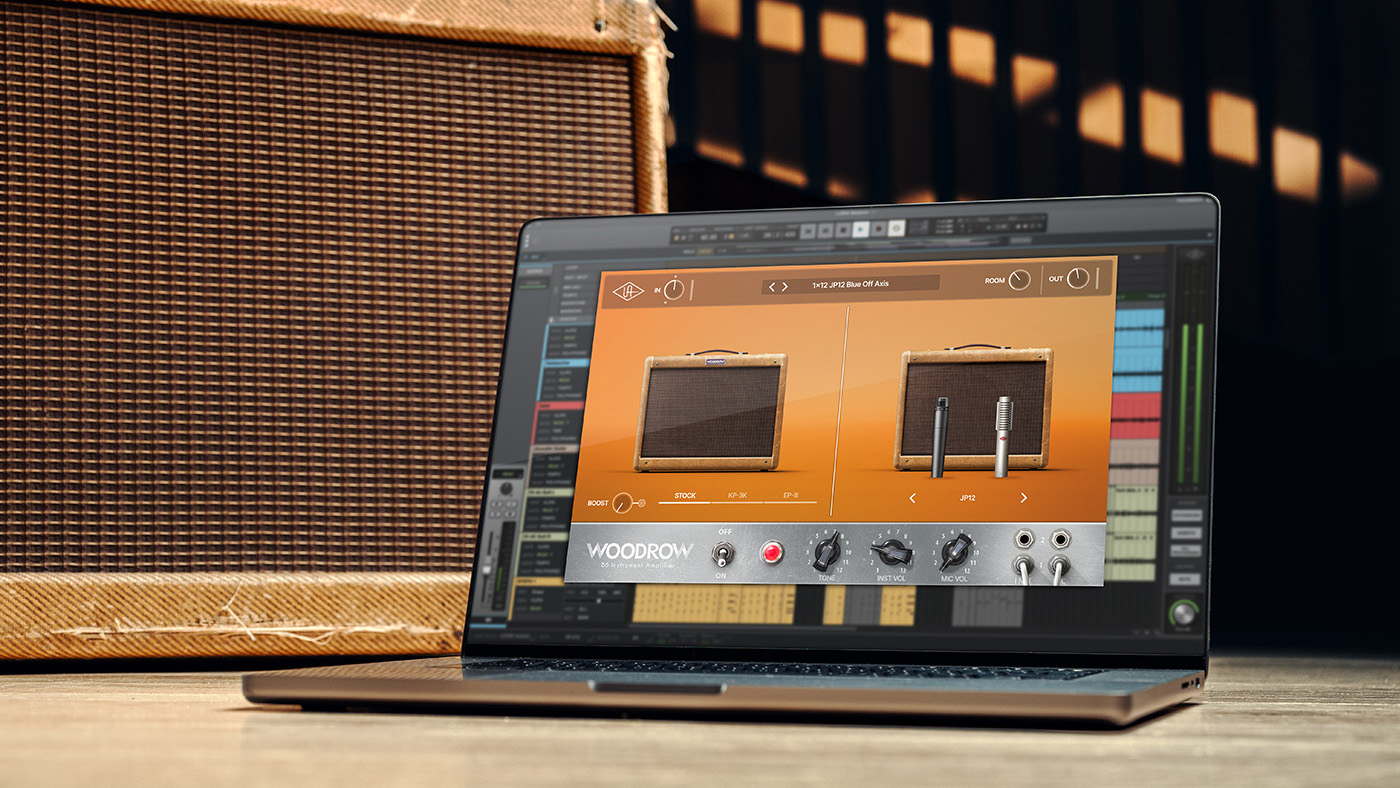The Flaming Lips talk synth experiments, studio gear and recording The Terror
Wayne Coyne, Steven Drozd and producer Dave Fridmann discuss the band's most ambitious album yet

For a band who have released their 13th studio album, The Terror, The Flaming Lips are showing the same disregard they've always shown for resting on their not inconsiderable laurels.
In a league and musical world of their own, with The Terror (as the name suggests) The Flaming Lips can be seen mining a darker vein than previous offerings to create a beautiful, immersive miasma that reflects on life, loss and longing.
"Having access to computers and music software is the most punk-rock thing that's ever happened."
Software and plugins perhaps haven't always been the most welcome inhabitants of the rock world but The Flaming Lips continue to embrace and engage with them (and anything else that will help them enhance their sonic armoury) and the new album is no exception, strewn as it is with found-sounds, iPad soft-synths and Pro Tools.
Forged from some intense late night sessions at legendary producer Dave Fridmann's Tarbox Road Studio in New York State, The Terror's brooding soundscapes were driven mainly by guitarist/explorer Steven Drozd and frontman/force-of-nature Wayne Coyne and given wings by the production skills (and software savvy) of Fridmann.
We giddily seized the invitation to talk shop with Drozd, Coyne and Fridmann to find out how The Terror was lovingly fashioned.
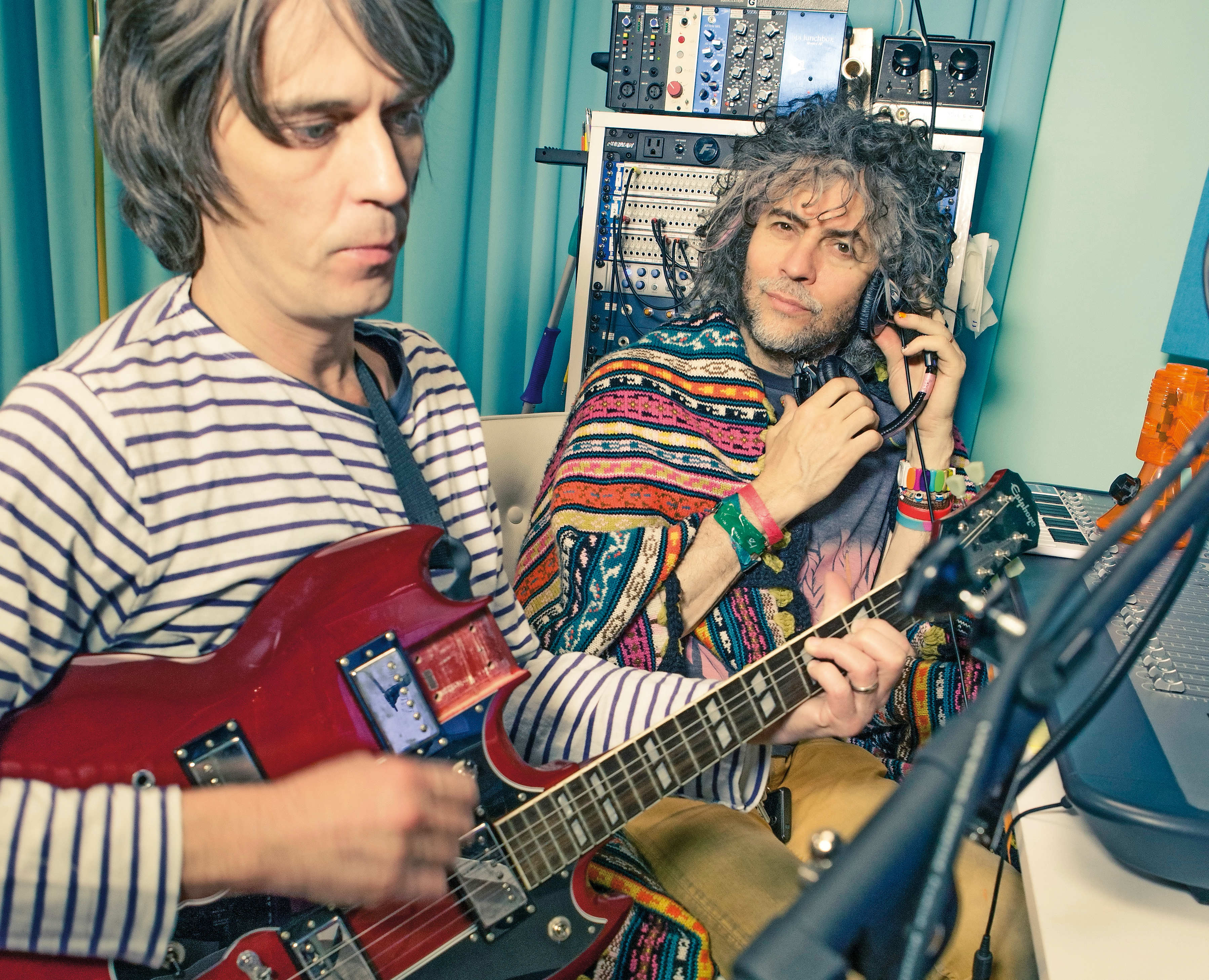
Left to right: Steven Drozd and Wayne Coyne of The Flaming Lips
Get the MusicRadar Newsletter
Want all the hottest music and gear news, reviews, deals, features and more, direct to your inbox? Sign up here.
Wayne Coyne
We caught up with Flaming Lips founder member, singer, guitarist and agent provocateur, Wayne Coyne to get the inside line on how The Terror came into being.
What was the initial motivation behind The Terror?
"Well, with this record we didn't really write 'songs'. We would shape sounds and put whatever structure there is to it and find ways to make them into songs. That's a beautiful way to make music... we know sometimes that being a song-writer is a fucking affliction! Some of our best moments, like say, The Observer off The Soft Bulletin, aren't really songs but more just a mood and a sound.
"Through time you learn that there are no set rules about what makes up a song. We've often gone so far into song-writing that, for us, it's sometimes the case that the less of a song there is then the more the room there is for it to be a song."
Is there anything off-limits, sonically, when you're putting together a Flaming Lips album?
"Well we're no strangers to bombast, you know, and we always go for big sounds. There are things you can do live that are big, bombastic and loud but simply don't work on a record and you sometimes forget that.
"The W.A.N.D. was just made up sounds that's like a bunch of drums and stuff and during one mix of that Kliph (Scurlock) had gone out and played cymbals, which made it sound too like a rock band, so we took most of them off.
"Cymbals and crescendos or changing time signatures are all things that add to the mood of a song. We've made 16 albums now so we don't worry too much about things, rather we like things if they express what we like and we don't think of it as being 'guitars' or 'drums' - it's just sounds.
"Even the way we do our voices on The Terror means that we're not really singers; we're just part of a sound."
That is one of the striking features of The Terror - the voices seem more textured than conventional vocals. How did you process them in the studio?
"Almost every time we'd go to do vocals there would be some new wacko plugin that someone would be saying to try.
"One of the main vocal sounds we used is a choir sound that Steven made from his voice on his iPad. It's him playing a manipulated choir of himself... it's a great sound, even by our standards! We used it on one song then ended up wanting to use it on more."
Are you excited by the fact that you can now create boutique choirs with iPads and the like?
"I think that it's a good world where that becomes more normal and people understand it more. In some ways it devalues what music is, in that it's not like some mystical thing being carried down from the mountain - everybody, eventually, will know some weirdo who's playing around with gadgets to make cool music.
"That's different from when I was growing up where it was a special treat to run into a musician that could really play.
"Nowadays, it isn't that people can't play, it's more that, having access to computers and music software is the most punk-rock thing that's ever happened to music. Now somebody can sit in their room and just make music; they don't have to pay attention to the world or culture.
"I think that's the anarchy that punk hinted at. That sort of, 'do your thing, man... don't wait on these record companies to tell you that you're an artist. If you're an artist just fucking do it!'"
Have we reached saturation point with modern music? Does it get ever harder to create something that sounds unique, and do you please yourself first then hope the audience likes it too?
"Well, we're in the audience too and sometimes, when you really like a piece of music you're working on, that takes precedence over the rational side of your process.
"I think with music these days no one stands up and says, 'that's a really loud song'... or 'a really clear song'. It's all about what that music evokes. Even though you and I may know a lot about the way music and recording works, most people don't and they don't really care how it's made.
"I like eating hot-dogs but I don't wanna go visit the slaughter-house! Most people just listen to the music they like and don't really care how it was created."
Do the words generally come after the music's taken shape?
"Yeah, we work that way a lot where so much is being evoked by the music that you almost let it hypnotise you and you then realise how the words should come out.
"Steven's music especially does that for me where his melodies almost hint at words. Mostly it's about the tone... understanding, regret or longing that you hear in music.
"There are so many different directions you can go with the tone of a piece of music. I've used the example of Dark Side of the Moon before where, if you just look at the lyrics as words on a page then you can't quite see where the power is, but as soon as you add the music and momentum then it makes sense. There's a lucky equation sometimes when you're saying nothing really, but it's actually saying absolutely everything."
How important has technology been to the creation of The Terror?
"It's everything, yeah. We would be doing jams at Dave Fridmann's place, Tarbox, where it's always completely ready to do something at any time. All the amps are plugged in - everything we need to make a sound is ready. The worst thing in the world is wanting to make music but having to find a power supply or an adaptor.
"We were working there one night and there was nobody using the Pro-Tools rig in the B studio there, so we went in and I just used my phone to make a little video, which we then used the sound from on the song, You Lust.
"That sound is taken right from the phone into Pro-Tools. The way things are recorded really effects what you're hearing. With that, there are two keyboards closer to the phone and all the other stuff in the room behind them and it all gets compressed down to a sound where you can't really discern what's what.
"The beauty of good microphones is that you can place it somewhere in a room and hear a hi-hat sound clearly, whereas the beauty of cheap microphones is that they sometimes compress everything until it's just a cloud of sound. To me, the greatest thing that happens to us is that we listen."
Can we also detect the distinctive tone of a beautiful old EDP Wasp analogue synth in places?
"We're so much the slaves to sound that we're almost always looking for a new sound to use. We were at Sean Lennon's studio a little while back and we saw the Wasp, played it, loved it and, at the end of the session, Sean gave it to us.
"When we took it back to Dave's studio it was almost all we played for a while. That's the truth about how music is, really.
"When we made Yoshimi we'd just got a big Roland XP80 sampler-keyboard and even if you play stuff on it now it's still got all the samples from Yoshimi in it. Without that, we wouldn't have made that album."
Refreshing, given that the sampler wasn't always such a welcome visitor in the rock world?
"Well, I guess people assumed it meant something other than what it is and sometimes people hold on to those misconceptions. Buddha and Zen always tell you, 'don't worry about what things mean, worry about what they are' and that is harder to do than to say but it's just another set of those stupid rules that people make up.
"If you do this, you're cool, if you do that, you're not cool... well, to follow your stupid rules is not cool! Those things ruin people as they want to do what's cool or what's smart and that's no way to make art."
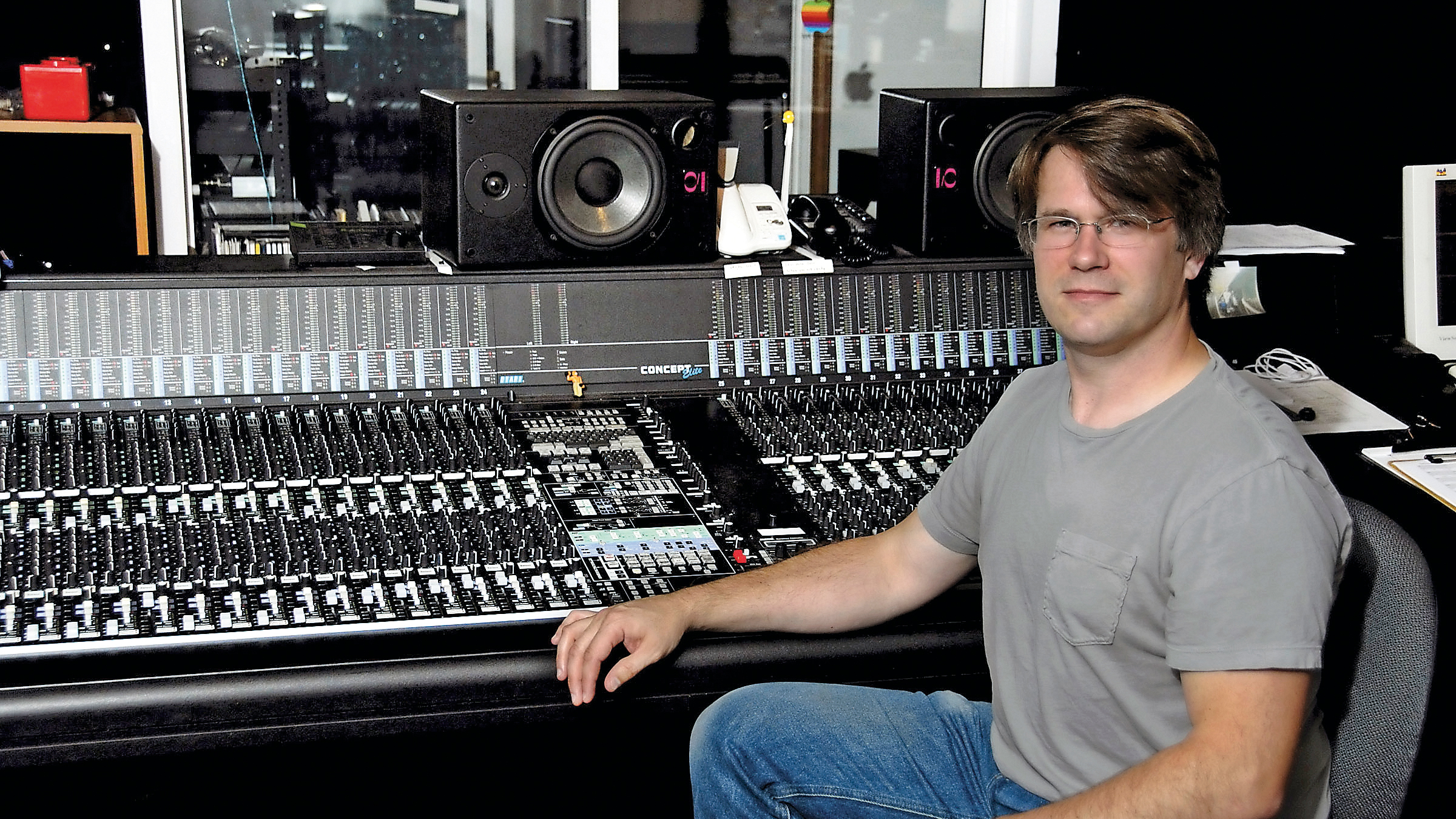
Dave Fridmann
Former Mercury Rev bassist now producer-de-jour for The Flaming Lips amongst many others, Dave Fridmann allowed us a glimpse inside the control room of his much-vaunted Tarbox Road Studio.
How do you choose what gear you're going to use on any particular project?
"Usually the bands dictate what we're doing and how we're going to be doing it because they'll have some particular thing that they want to do."
Your kit-list at Tarbox Road Studios would make most gear-heads hyperventilate - what are your 'go to' bits of studio kit?
"Again that's quite band dependant. A band like, say, The Cribs came in recently and they'd spent their previous album's recording staring at a Pro-Tools screen with 10-minute breaks of actually playing so they wanted to be a band so we let them play it all to tape.
"With The Terror it's all Pro-Tools as everyone in the band has a Pro-Tools rig so that made it pretty straightforward to know what was going on, to track what was happening and to be able to work on stuff at home."
I guess that's really changed the way a band can operate in and out of the studio?
"Absolutely... the Pro-Tools revolution is definitely the biggest change since ADATs, really. Now Avid have gone to the next level and finally made their hardware open source, sort of, so you can use their software with any hardware and vice versa; which is great because people don't now need to have a giant rig or even an Mbox attached at home - they can just open up a file any time and get to work."
We couldn't help but notice your iZ RADAR hard-disk recording system too. Do you think that's a bit of an unsung hero of recording hardware?
"Oh yeah, they're great. A lot of times when we're doing a tape-based session I'll often use RADAR as a second 24-track. Again, just because it's so familiar to a tape user and it's so straightforward to use. I have a RADAR 1 so there's only one layer of Undo and then you're on your own!"
What other gear found favour when you were working on The Terror?
"I suppose the biggest difference in terms of the new Lips record is procedurally... not that it's that different for them, but compared to most groups.
"Any strange noise, thought or feeling they have, they just go ahead and act upon it. 'I heard this weird sound in the supermarket the other day and recorded it on my iPhone so that's going to be the start of a song' - that kind of thing.
"A lot of people, even if they have similar strange inspirations, might tend to turn it into something more normal but the opposite is true with these guys."
The advent of iPhones and portable PCM recorders has opened up the sonic palette a little further, hasn't it?
"Absolutely. One of the lead synths that kept cropping up on the album was NLogSynth which Steven uses on his iPhone. We used that tons as it's got such a cool sound.
"So, we're sitting in a wonderful recording facility with all the gear you could imagine around you and there he is hunched over his iPhone using his fingernail to try and hit the right notes! That's great though as you have to create that sort of, 'anything goes' environment.
"I like all the new gadgets as you come up with such strange new combinations. I teach recording at a local college and I always tell the students that the sooner you can get it to sound better, the better everyone who comes after that is going to play. So, the fact that all these new software programs already sound great means everyone right down the line will play better and work harder at new ideas."
Would we be right in guessing that there's some Reaktor sprinkled all over The Terror?
"Definitely... I'm a big fan of the Native Instruments stuff as it works great and sounds great. [Laughs] Anything that has a 'random' button in it then I'm a big fan! I just tend to crack open the Metaphysical Function and hit random till something happens."
Is there a danger that programs like Reaktor are a new wormhole to disappear down in the studio?
"Fortunately I'm usually looking for something fairly specific before I go into Reaktor so I'll give myself a deadline of say ten minutes to find what I'm after, then if I don't find what it is I want I'll move onto something else.
"I don't really write my own ensembles or anything, although I can do programming. You can just go through the forums and download so many different people's amazing work, load it up and away you go."
You have some lovely outboard in Tarbox - Fairchilds, Ureis, and the like. How close do you feel that the software emulations of classic hardware are getting to the originals?
"No... not close at all in my opinion. What's interesting is that I have a real Prophet V synth and I've also got the software version and they have nothing at all to do with each other but they're both great for different things.
"I don't really know why the software version is even called a Prophet V but I don't care anyway as it does something new and different. So, if I'm looking for a Prophet V sound then I'll go to my hardware synth but if I'm looking for a new sound then I can use the soft-synth.
"I have nothing against plugins and I do use them but for my money the Fairchild doesn't sound like a Fairchild, the Urei isn't like a real Urei. They still sound cool but, to me, they don't sound like what they're supposedly modelled on."
Wayne told us of his love for the old EDP Wasp synth. Was there a conscious decision to go more analogue on the new album?
"I wouldn't say it was a conscious decision but what was a conscious decision was to make things more variable and random and seize the moment.
"Sometimes, if you go to set up for a sound or a song, you'll set the mark in the distance where you're going with it; but in this case we never set the mark more than as far as our arms could reach. So it was just a case of, 'do I like something'? If yes, cool, then we're moving forward with it.
"So, synths like the Wasp, the ARP 2600 or the Yamaha CS-60 we've got mean that you can start out with the best intentions in the world but it'll still end up sounding like something else. We really made a point of cultivating that type of procedure though.
"There's a couple of tracks on the album where the click-track is a noise the Wasp was making when it was broken and we just kept it in the song. So, there's a sort of organic element to most of what happened on the record where it's continuously variable and interesting moment to moment."
Once all the recording was done, did you still spread everything out over a mixing-desk, or is it all in the box now?
"Everything's got its own out and it's all mixed through the console, an Otari Concept Elite, which was not a particularly popular console when I bought it 15-odd years ago.
"It was considered the poor-man's SSL because it has total-recall and stuff like that on it. I can still recall mixes from ten years ago if I need to, which is a very handy thing to have."
What about editing? Where does that generally take place?
"Primarily in Pro-Tools but every once in a while we'll bump something into Ableton Live or create something in Reason. Generally though, in terms of programming and editing we stay within Pro-Tools."
Is it refreshing how well digital gear talks to other digital gear nowadays?
"Oh yeah. I'm old, you know, so I remember linking serial ports to MIDI and crazy stuff like that which was a nightmare!"
Any bits of gear you really couldn't work without?
"My console is a big deal as it's served me really well. It's more like the odd-ball microphones and things, especially for this new album we used a lot of things like an STC 4035 'ball and biscuit' for some really ambient recording. We've got a couple of Motorola RMN5068 Custom Microphones too that are nice and weird.
"If I had to pick one bit of gear that I don't feel right being in the studio without at this time it would be my Korg Kaoss Pad. Kaoss Pad 1 & 2 in particular are great, I just can't get over those sounds.
"The newer ones are great too but they're more focused on DJs and dance music, which is fine but I'm not looking to them for sound source. Anything and everything goes through those early ones of mine.
"As far as synths go, the CS-60 and the ARP 2600 are my two 'go to' keyboards for creating something that nobody's ever heard before."
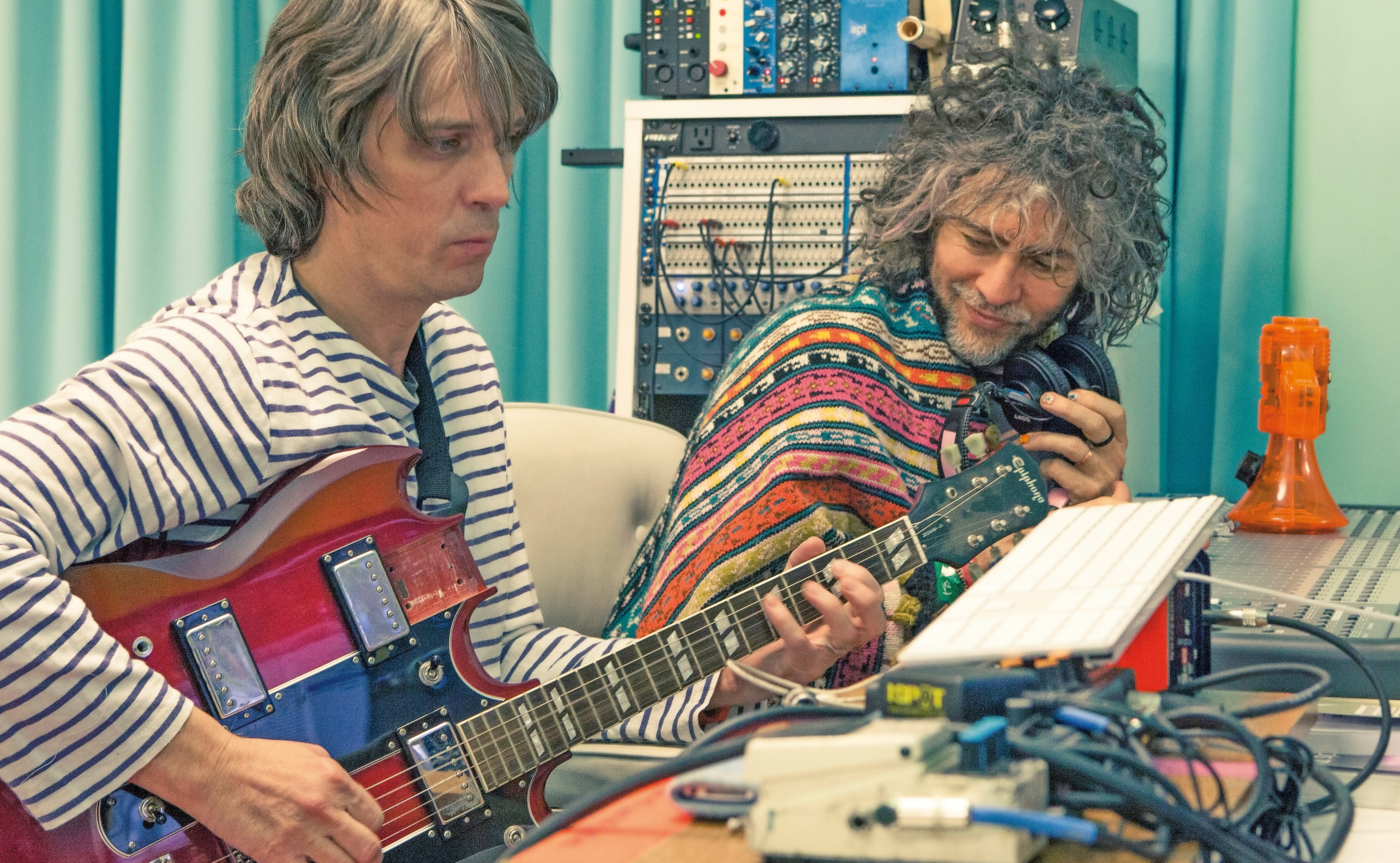
Steven Drozd
Guitarist/multi-instrumentalist and iPad-choir-master, Steven Drozd describes the sonic processes, and the highs and lows involved in creating, The Terror.
Was there a plan from the off to make The Terror sound different from other Flaming Lips albums?
"Well, I think early on with the first piece of music that we consciously worked on for the new record, I was messing around in one of the studios with no real agenda for it to be a song or anything. Whatever it was, Wayne responded strongly to it so he came in with his energy and the way he hears things and started working on it with me and it took on a whole new life.
"I think that was when we decided to try and make a collection of songs in the same vein or with the same kind of vibe."
Dave mentioned that you were all bringing in found sounds on iPhones - was that important to the final texture of The Terror?
"When you've been making records for so long it can feel like you're just doing the same thing over and over, which we try not to but you can tend to write the same type of chord progressions and whatever, so anything that can add to the palette of your sound is welcome.
"On this record, more than any other record I think we used any sound. You Lust starts with a sound from Wayne's iPhone, which Dave compressed and EQ'd then put into Pro-Tools and we then played on top of it.
"A few years ago we probably wouldn't have built an entire song around something like that, so for us it was more interesting to get these new sounds that would help shape the emotions and feeling of some of the music Having iPhones or iPads makes that all incredibly easy. Now, instead of taking eight hours to get a guitar sound, we just got an app on the iPad!"
Wayne mentioned that you were solely responsible for creating the incredible choir sound that crops up on a few of the tracks?
"They have a new keyboard app for iPad every day, or so it seems, there are so many. I found one called Sylo Synth, which I started playing around with.
"I dreamed of owning a Mellotron for about 15 years but by the time I could afford one I didn't care anymore!"
"You can make samples directly into it through the mic on the iPad so I used my voice and sang into it. Once the sample's in you can edit it, add ring-modulators, delays or granular effects to it. When I played a chord with my voice sample it just sounded eerie so we decided to use it as it sounded, like a choir from the past meeting a choir from the future and bad acid-trips all combined!
"We used it first on You Are Alone, and then decided it should be one of the sounds that kinda shapes the record."
Were you fairly rigid with yourselves to stick to your initial sonic palette as the album progressed?
"It was a real conscious effort not to stray from a certain sound on this record... you'll notice that there's only really a couple of guitar parts on the whole record, which are pretty much all a Fender 12-string run through a ring-modulator. So we were quite strict to keep it to that and maybe four or five keyboard sounds.
"There's at least 100 plugins you can use in Pro-Tools, there's every synthesizer imaginable... sometimes that's too many options and can be a little overwhelming to the process. So, we tried to stick within those set parameters as much as we could and I definitely think it helps make the album sound like one whole kinda statement.
"I'm really glad we did that as we can have a tendency to just run amok in the studio; after about three songs it made it more of a challenge, but it was worth it."
That is one seriously nice kit-list at your disposal at Dave's Tarbox Road Studio, is it not?
"Absolutely... though we've been going there so long that we probably take it for granted a little. It's such a magical place and we've made so many records there, it's like a second home."
Do you take any music-making software out on the road with you?
"I do have Pro-Tools on my MacBook but I never really use it anymore. I used to use it to quickly record ideas on the road but now there's a recording app on my iPad and I have Audacity on the iPad too, which I'll use.
"I can't believe how good Audacity is for a free program. If you're like a 15-year-old kid you can pick up a cheap laptop and load up Audacity and figure out some really creative ways to use it.
"I certainly don't use Pro-Tools as much as I used to. I have a little studio at my house but Wayne's also got a full-on studio at his place so we work on a lot of stuff there."
Any other bits and pieces you have on the iPad?
"Korg have their iMS-20 for the iPad, which is crazy how good it sounds. We used that for a couple of little synth lines on the album too. If we didn't do it on Dave's CS-60 or the ARP 2600 then the chances are it was done on the iMS-20.
"We used a couple of the Mellotron apps on the iPad as well, mixed in with the choir sound I made. There's a brilliant one called Space Lab that I bought after we'd finished the album that I'm using live just now. It's a really badass mono synth and its strong suit seems to be its great arpeggiator."
...and not forgetting Sean Lennon's Wasp?
"[laughs] I think he just saw how into it we were and gave it to us and we've ended up using that on most of the album.
"It's one thing to have pristine keyboard sounds or nice plugins but there's also something really special about firing up an old synth that's maybe been sitting in a cupboard for 20 years.
"Same goes for Dave's ARP 2600 which had been sat in the corner of the studio for a while and I said that we should check it out and Dave said, 'I wish you would as nobody seems to care about it!' We've used that a lot too over the past couple of years as it has a unique sound... it was like a musician that was being neglected but wants to play."
The kind of synth that people threw out at one point when everything went digital in the '80s?
"Isn't that crazy! In the late '80s and early '90s you couldn't give some of that stuff away... great gear like Moogs or even Realistic mono-synths that you see on eBay now for incredible prices.
"With Korg bringing out the new MS-20 it's strange that, in this day and age, when we have all these software options some people just want that electro-mechanical experience of turning knobs or sliding faders on an analogue synthesizer.
"One thing I've noticed is that gear isn't as coveted as it was when I was younger. I dreamed of owning a Mellotron for about 15 years but by the time I could afford one I didn't care anymore!"
Do you get into the programming aspect of using software?
"Well, you know, I'd say that around 2005/6 I was really into stuff like Reaktor. I'm still into it but it's a tool I go to use but it's not something I explore or investigate so much anymore, if that makes sense?
"I learned a lot from Dave. He downloaded Reason for me originally and showed me the basics on how to get stuff going on it. This was before I knew anything about computers so I learned lots of tricks and shortcuts from him over the years."
Is there any new gear out there that you're currently coveting?
"I went on an eBay spree back in 2008 and I just had to stop myself as I was going crazy buying stuff. Now I've got piles of boxes of gear... we use the gems from that.
"I was on a Maestro mission and trying to find all the early Maestro stuff and I got one of the pre-Moog Maestro ring-modulators, which is the one we used so much on The Terror.
"I did find a Ludwig Phase II synthesizer, which is an excellent guitar stomp-box thing and after that my wife and I agreed I had to slow down with the buying.
"I can't say that there's any new gear I'm coveting right now. We're working on the live show at the moment so, if I'm looking for a piece of gear, then it would be to help me do something live."
How is the live show panning out, gear-wise?
"Well I'm really excited about it and surprised. In the past we've used a lot of backing tracks to fill out the sound, especially with Soft Bulletin-era stuff, which couldn't really be played with just four people.
"We've got Derek Brown with us now and he's a great musician and that makes five of us on stage. We found when we went to play Look the Sun is Rising, between the five of us we were able to recreate how it sounded in the studio."


Future Music is the number one magazine for today's producers. Packed with technique and technology we'll help you make great new music. All-access artist interviews, in-depth gear reviews, essential production tutorials and much more. Every marvellous monthly edition features reliable reviews of the latest and greatest hardware and software technology and techniques, unparalleled advice, in-depth interviews, sensational free samples and so much more to improve the experience and outcome of your music-making.
"No one phoned me. They never contacted me and I thought, 'Well, I'm not going to bother contacting them either'": Ex-Judas Priest drummer Les Binks has died aged 73
“I called out to Mutt and said, ‘How about this?’... It was a complete fluke": How Def Leppard created a rock anthem - with a little bit of divine intervention



